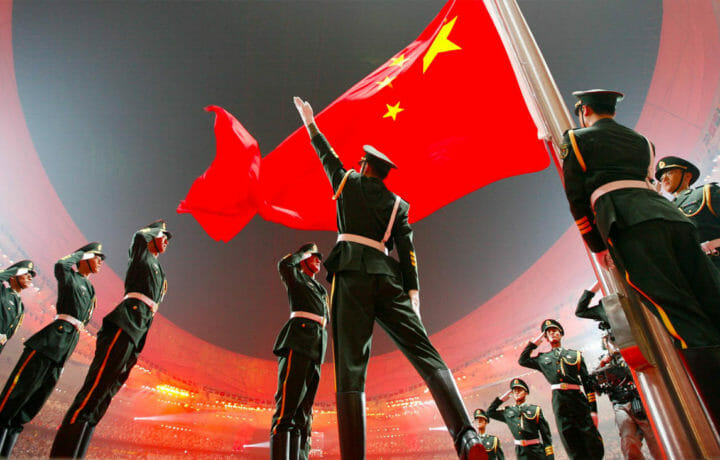China this week took a page straight out of Stasi counterintelligence playbook (NB: Stasi is the former German Democratic Republic’s security service) when it asked its citizens to report on foreigners and each other to combat espionage. The foreign espionage threat canard has long been China’s security service’s go to topic as they whip up a bit of xenophobic fervor and wish to increase the temperature and ensure foreigners in China are looked upon with distrust. Though this time, citizens are encouraged to report on each other, a methodology which the legendary spymaster Marcus Wolf perfected within the GDR’s Stasi.
The Social Network Presence: PRC’s Ministry of State Security on WeChat
Like many nations’ intelligence and security services participating in the social network milieu is not unusual, that is unless you are in China. This past week, the PRC’s Ministry of State Security (MSS) made its presence known when they opened an account on the social network WeChat (which according to Statistica had in March 2023 over 1.3 billion are active monthly users.) and then the next day, they dropped their first post: “Countering espionage requires the mobilization of all members of society.”
This is not the first time the Chinese security apparatus has pointed at foreigners as the threat. In 2016, the security services published a cartoon series, “Dangerous Love” which spoke of the “Romeo foreigners” and the threat they posed, yet another page from Stasi’s playbook. It is however, the first which points citizens to the new PRC counterintelligence laws which were recently passed and went into effect on July 1.
Citizen Reporting: Encouragement to Combat Espionage
The expectation of citizen’s is clear as day. Here are some examples:
Article 8: All citizens and organizations shall support and assist counter-espionage efforts in accordance with law, and shall protect state secrets and secrets of counter-espionage efforts that they are aware of.
Article 16: All citizens and organizations discovering acts of espionage shall promptly report them to the state security organs; where there are reports to public security organs or other state organs or organizations, the relevant organ or organization shall immediately transfer them to be handled by the state security organs.
Citizens will be expected to report on each other, to include their foreign contacts should such exist. The key within this not-so-subtle message to the populace and to any company doing business in China is that the definition of what is considered a protected class of information has been expanded – “documents, data, materials, or items related to national security and interests.” That provides the MSS with a net the size of the Pacific Ocean to cast should they wish to act against any entity or individual in China.
Reconsidering Travel to China
The U.S. Department of State in their travel advisory for China, issued on June 30, minces no words, “Reconsider travel to Mainland China due to the arbitrary enforcement of local laws, including in relation to exit bans, and the risk of wrongful detentions.” The Department continues, “PRC authorities appear to have broad discretion to deem a wide range of documents, data, statistics, or materials as state secrets and to detain and prosecute foreign nationals for alleged espionage. There is increased official scrutiny of U.S. and third-country firms, such as professional service and due diligence companies, operating in the PRC. Security personnel could detain U.S. citizens or subject them to prosecution for conducting research or accessing publicly available material inside the PRC.”
FSO’s will be well served to ensure that travel briefings for those who must travel to China include the aforementioned and reconsider travel at this time.




